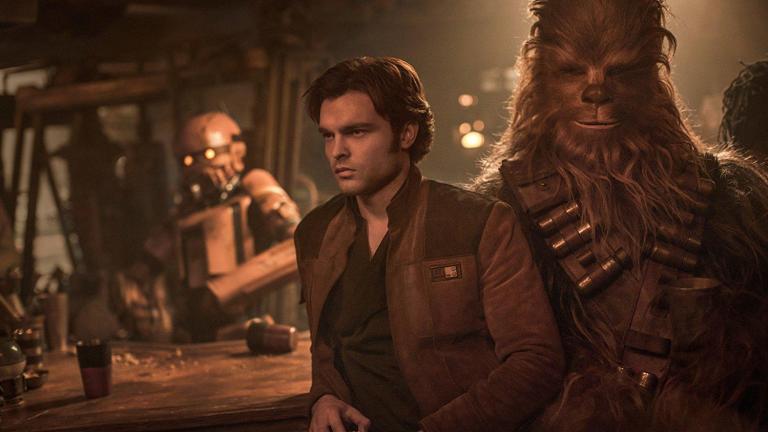Did Star Wars Learn the Wrong Lessons from Solo?
Lucasfilm seems convinced that deepfake technology can help them avoid Solo's meager box office earnings.

For some fans, the arrival of young Luke Skywalker in the eighth episode of The Mandalorian’s second season signaled a coming together of young and old. Just when it looked like the Empire might have finally stolen young Grogu from Mando, Skywalker came to the rescue, showing off a full array of Jedi powers only hinted at in the movies. But for others, the scene signaled a turn to the dark side of modern filmmaking.
The arrival of young Skywalker happened not because the then-septuagenarian Mark Hamill reprised his role in heavy make-up, but because of deep-fake technology. This technology allows studios to create performances out of digital thin air; to capture footage from some virtual world where Hamill continued playing Luke Skywalker in the early 80s. It wasn’t the first, nor the last time Lucasfilm had done this trick for Star Wars. Rogue One featured digital recreations of the deceased Peter Cushing as Grand Moff Tarkin and a version of Carrie Fisher in her early 20s as Princess Leia, while deepfake Luke returned again for an episode of The Book of Boba Fett.
But Lucasfilm hasn’t always relied on computers to bring fans younger versions of their heroes. For 2018’s Solo: A Star Wars Story, Alden Ehrenreich had the unenviable task of stepping in for Harrison Ford as the notorious smuggler, while Donald Glover took over for Billy Dee Williams as Lando Calrissian. While the movie has its fans (our own Don Kaye defended both actors’ performances in his review), Star Wars chief Kathleen Kennedy appears to consider them failures.
Speaking to Vanity Fair, Kennedy describes recasting as an experiment that pointed the way for future projects. “There should be moments along the way when you learn things,” Kennedy admits. “Now it does seem so abundantly clear that we can’t do that.” For some, it’s confirmation that Kennedy and the Star Wars team believe that an algorithm can recreate Ford’s roguish charm better than an actor like Ehrenreich.
This announcement raises concerns for Star Wars fans left underwhelmed with the simulated Skywalker shown on the Disney+ series, and Lucasfilm’s choice to go down the digital route instead of recasting. Twitter user @DawnNute writes that the news “makes me want to scream a bit.” Brad Whipple, a host of the Friends of the Force podcast, echoes that sentiment, calling the move “infuriating” while defending Ehrenreich: “[T]he takeaway from Solo should be the lackluster marketing not Alden’s performance,” Whipple tweeted; “he was GREAT as Han.”
While fans’ concerns certainly have validity, they can rest assured that the next Star Wars series will not use deepfake technology to recreate its lead. The real Ewan McGregor will play the titular Obi-Wan Kenobi, using tried-and-true make-up and acting skills. McGregor’s performance may not dissuade Disney from employing computers to bring us younger versions of Admiral Piett, Lobot, or any other character originated by an older or deceased actor. But it may remind producers that old theater tricks are just as powerful as the hoaky religions and ancient weapons they portray.
